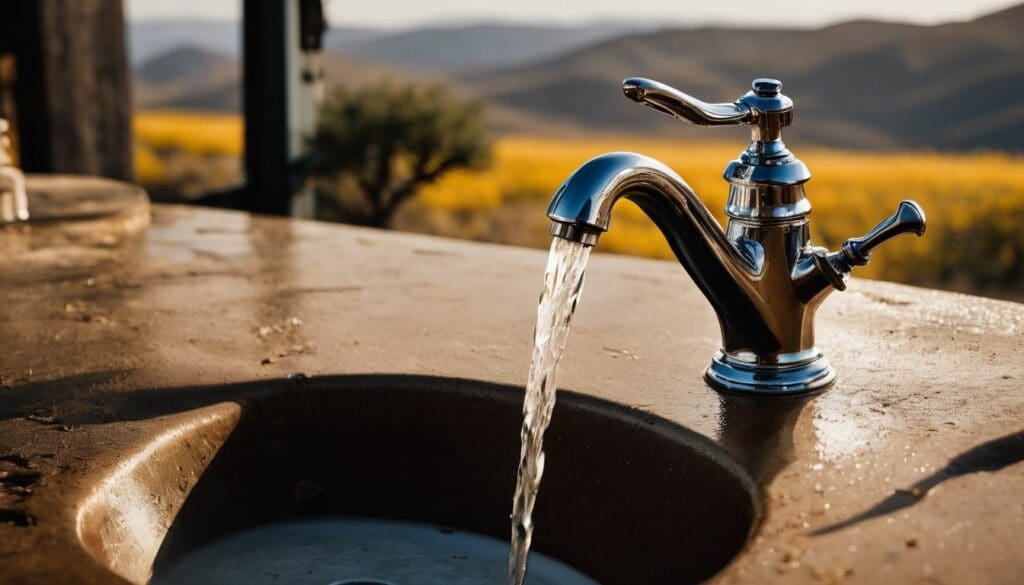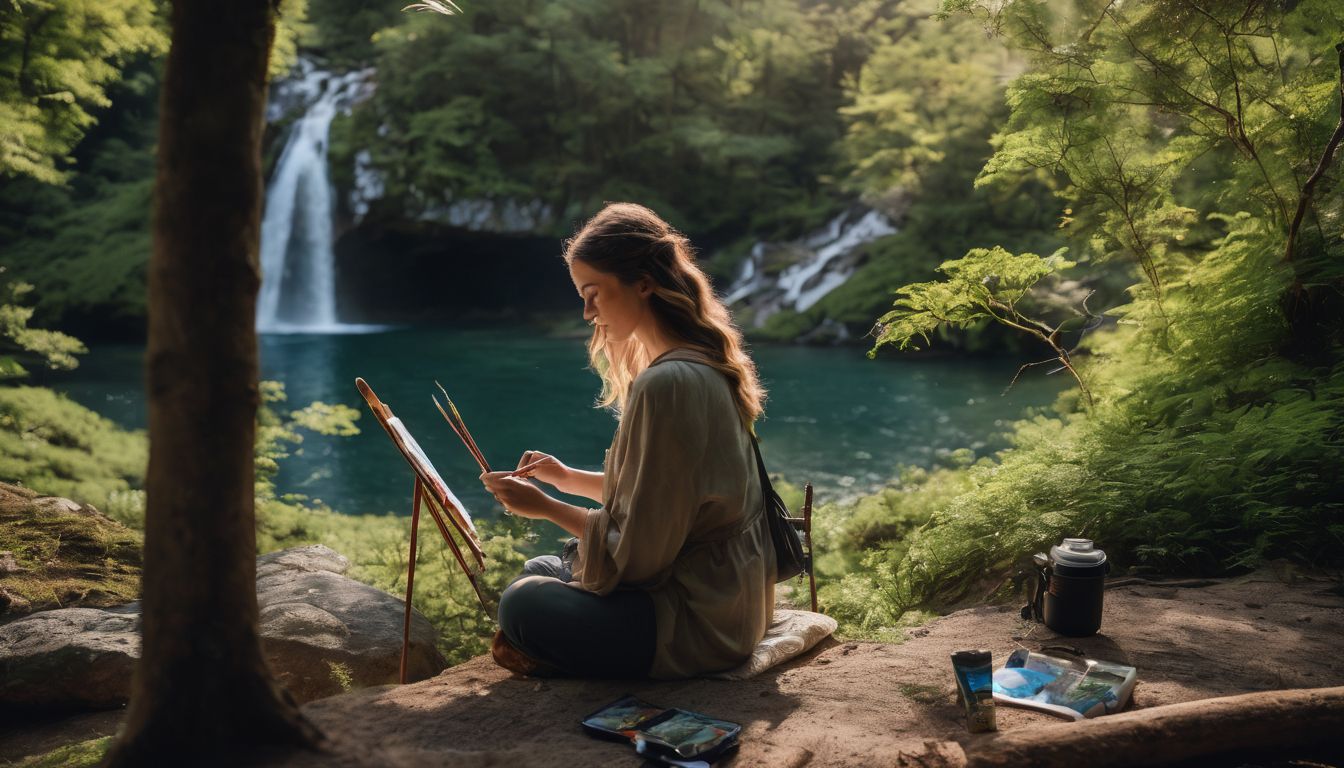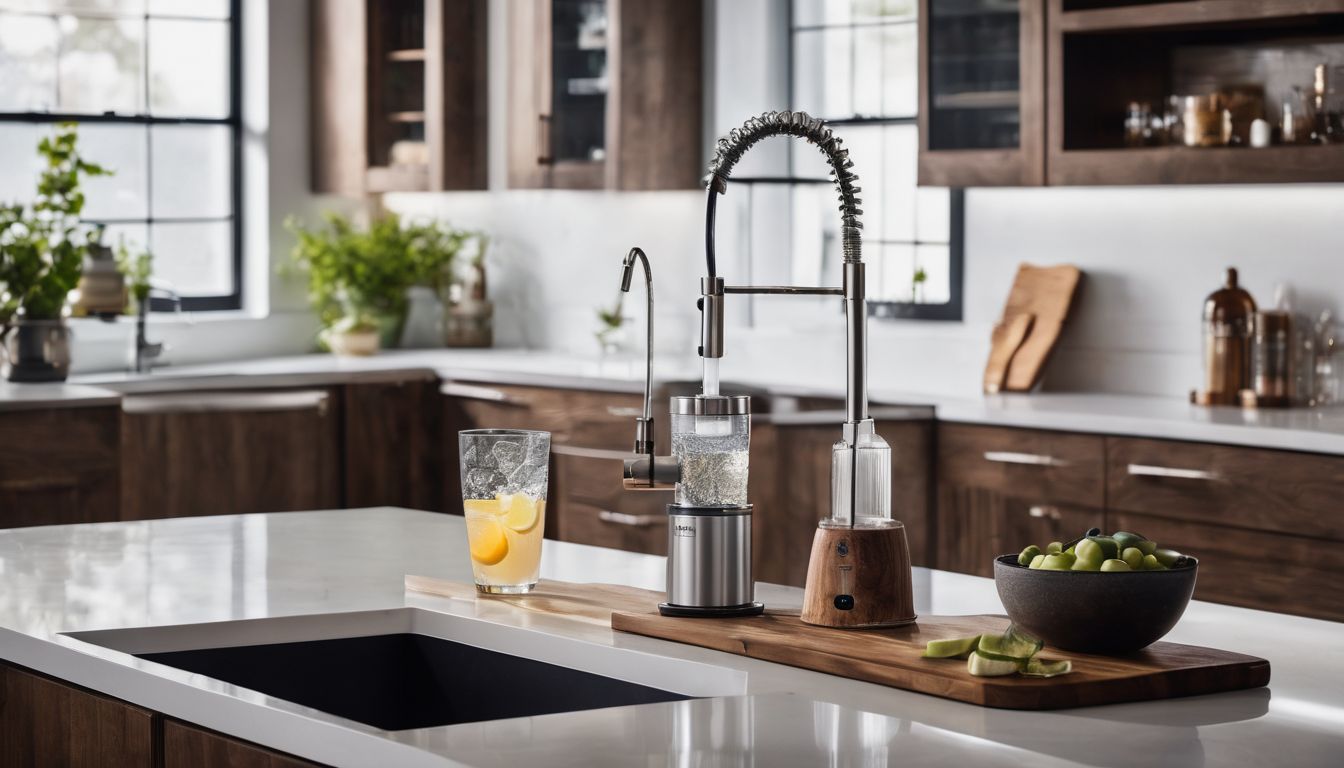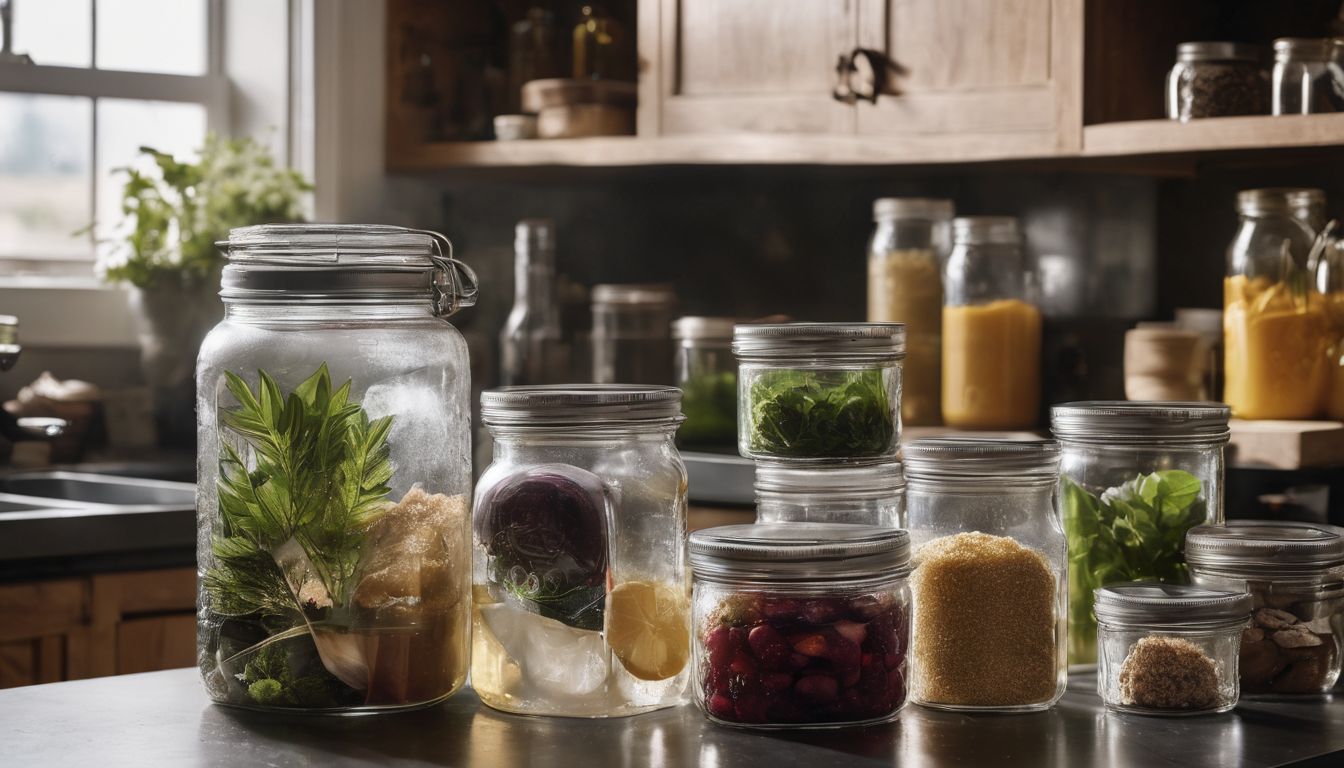Are you watching your water bill rise without knowing how to lower it? It’s shocking, but a single leaky tap can waste over 5,000 litres of water annually. Our blog post will guide you through simple yet effective tips for using less water at home, helping your wallet and the planet.
Start saving today!
Key Takeaways
- Fixing leaks in the home can save over 5,000 litres of water each year, making it a priority for conserving water and reducing bills.
- Installing water-saving devices such as low-flow showerheads, aerators on taps, and high-efficiency appliances helps reduce household water consumption significantly.
- Collecting greywater from activities like dishwashing or rainwater using a barrel supports garden irrigation without using treated tap water.
- Being mindful of the time and method of outdoor watering, such as during cooler hours with drip irrigation systems, increases efficiency and limits evaporation losses.
- Upgrading to energy – efficient appliances not only saves water but also reduces energy needs as both resources are closely connected.
Indoor Water Conservation Tips
To conserve water indoors, it’s important to fix any leaks promptly and use water-saving devices. Additionally, being mindful of water usage in the bathroom and kitchen can help reduce water waste.
Fix leaks promptly
Leaks in your home may seem minor, but they can lead to significant water wastage over time. Tackling these issues swiftly is crucial for effective household water conservation.
- Identify leaks by monitoring your water meter. If the readings change while no water is being used, you likely have a hidden leak.
- Check faucets and showerheads for drips. Repairing or replacing worn washers can often fix these leaks quickly.
- Inspect toilet tanks for silent leaks by adding food colouring to the tank and seeing if it seeps into the bowl without flushing.
- Examine pipes under sinks and around appliances for any signs of moisture or corrosion, which can indicate small or slow leaks.
- Schedule regular maintenance checks on your home’s plumbing system to catch potential problems early before they escalate.
Use water-saving devices
To save water in your household, consider using water-saving devices such as low-flow taps, showerheads, and toilets. Install aerators on taps to reduce the flow of water without compromising pressure. Consider using a water-efficient dishwasher and washing machine to minimise water usage during household chores. Additionally, invest in a water butt to collect rainwater for outdoor use, reducing the need for treated water. Finally, consider installing a smart irrigation system that adjusts watering schedules based on weather conditions to avoid unnecessary water use in your garden.
Be mindful of water usage in the bathroom
- Install low – flow showerheads and taps to minimise water usage while maintaining a pleasant bathing experience.
- Turn off the tap while brushing your teeth or shaving to avoid unnecessary water wastage.
- Fix any leaky taps or toilets promptly to prevent an unnoticed continuous flow of water.
- Consider using a dual – flush toilet, which allows you to choose between a full or partial flush based on your needs.
- Encourage family members to take shorter showers, reducing overall water consumption.
Utilise efficient methods in the kitchen
When being mindful of water usage in the bathroom, it’s also important to focus on efficient methods in the kitchen. Here are some practical tips for conserving water while cooking and cleaning in the kitchen:
- Install aerators on taps to reduce water flow without compromising pressure, saving a significant amount of water during daily activities such as dishwashing.
- Choose energy – efficient dishwashers with a high Water Efficiency Label Scheme (WELS) rating to minimise water consumption.
- Use a basin when washing fruits and vegetables instead of letting the water run continuously, then reuse this water for household plants or garden irrigation.
- When boiling food, use just enough water to cover ingredients; this will help save both water and energy used for heating.
- Ensure that all kitchen appliances are running efficiently by checking for leaks or malfunctions regularly.
Conserve water in the laundry room
To conserve water in the laundry room, follow these tips:
- Use a high – efficiency washing machine to reduce water consumption and energy usage.
- Wait until you have a full load before running the washing machine to maximise efficiency and minimise water wastage.
- Consider installing a greywater system to reuse water from your washing machine for other household tasks, such as watering plants.
- Choose eco – friendly laundry detergents that require less rinsing, helping to conserve water with each load.
- Regularly maintain your washing machine by checking for leaks and ensuring it functions optimally, preventing unnecessary water waste.
Outdoor Water Conservation Tips
Be mindful of water usage in the yard and limit outdoor water use to conserve water. Avoid watering during hot weather to reduce evaporation and save water.
Be mindful of water usage in the yard
Conserve water outdoors by being mindful of your yard’s water usage.
- Choose drought – resistant plants that require less watering.
- Consider using mulch to reduce evaporation and retain soil moisture.
- Adjust your lawn mower to a higher setting to help grass roots retain water.
- Use a broom instead of a hose to clean outdoor surfaces.
- Install a rain barrel to collect rainwater for garden irrigation.
- Regularly check and maintain your irrigation system for leaks and proper function.
Limit outdoor water use
To limit outdoor water use, consider installing a water butt to collect rainwater for your garden. This can provide a free and sustainable source of water for your plants and reduce the need for using tap water. Additionally, choose drought-resistant plants for your garden, as they require less watering and help conserve water.
- Use a soaker hose or drip irrigation system in your garden to deliver water directly to the roots of plants, minimising evaporation and ensuring efficient use of water.
- Implement mulching around plants and trees to retain moisture in the soil and reduce the frequency of watering.
- Set up a timer on your sprinkler system to avoid overwatering and ensure that you are only using water when necessary.
- Consider using greywater from household activities such as dishwashing or laundry for watering outdoor plants where safe and permitted by local regulations.
Avoid watering during hot weather
During hot weather, limit outdoor watering to early morning or late evening. This prevents excessive water evaporation and allows plants to absorb moisture effectively. Watering during cooler times of the day reduces stress on plants and ensures that the water reaches the roots without evaporating too quickly.
To conserve water during hot weather, consider using mulch around plants to retain soil moisture and reduce the frequency of watering required. Additionally, installing a rain barrel can capture rainfall for later use in watering your garden, reducing reliance on mains water supply.
Energy-Efficient Water Usage
Understanding the link between water and energy is crucial for conserving both resources. By adopting energy-efficient water usage habits and looking for labels that indicate low energy consumption, households can make a significant impact on reducing their environmental footprint.
The link between water and energy
Water and energy are closely connected in our daily lives. Many of the processes used to treat, heat, and deliver water require a significant amount of energy. For example, pumping and treating water for household use requires electricity or fuel.
On the other hand, producing energy often requires large amounts of water for cooling purposes in power plants. Therefore, conserving water also helps conserve energy while reducing greenhouse gas emissions associated with providing and using energy.
Understanding this link can help individuals make more informed choices about how they use both resources at home. By being mindful of their water usage, people can directly contribute to saving not only water but also the energy required to treat and transport it.
Tips for conserving energy and water
To conserve energy and water in your household, consider the following tips:
- Replace traditional incandescent light bulbs with energy – efficient LED bulbs to reduce electricity consumption while also saving on water used in power generation processes.
- Install low – flow showerheads and faucets to reduce hot water usage, ultimately conserving both energy and water.
- Upgrade to energy – efficient appliances, such as washing machines and dishwashers, which not only save electricity but also reduce water consumption.
- Use cold water for laundry whenever possible to lower energy usage by avoiding the need to heat water, simultaneously conserving water resources.
- Make it a habit to turn off lights and unplug electronic devices when not in use to save both electricity and the water required for generating power.
Look for energy-efficient labels
When shopping for new appliances, check for energy-efficient labels to reduce water and energy usage at home. These labels indicate that the product meets specific standards for conserving resources while still delivering high performance.
By choosing appliances with these labels, you can contribute to water conservation efforts in your household and make an impact on the environment.
Utilise technology for water conservation
Consider embracing innovative solutions to conserve water at home through the utilisation of technology. Look for modern appliances and devices that are designed to minimise water usage while still delivering optimal performance.
By integrating smart technologies, such as high-efficiency toilets, low-flow showerheads, and sensor-based irrigation systems, you can significantly reduce your household’s water consumption without compromising on convenience or comfort.
Furthermore, consider installing smart meters or leak detection systems that can swiftly identify any wastage or malfunction in your water system. Embracing these technological advancements not only supports sustainability but also contributes towards reducing your utility bills.
Other Ways to Conserve Water
Composting organic waste not only reduces landfill space but also helps to conserve water by enriching soil and reducing the need for irrigation. Reusing water from household activities such as bathing or washing dishes can also contribute to water conservation efforts in the home.
Composting
Composting your food scraps and yard waste is an effective way to reduce household waste while creating nutrient-rich soil for your garden. Compost bins can be easily set up in your backyard to turn organic materials into a valuable resource for your plants.
By diverting organic materials from landfills, you can help reduce methane emissions and support a more sustainable environment. Utilising compost in your garden also helps retain moisture and improve soil health, reducing the need for additional water and fertilisers.
Furthermore, composting is an excellent method of reducing kitchen waste while producing natural nourishment for plants. It’s a simple yet impactful way to contribute to environmental conservation at home while also benefitting your own gardening efforts with eco-friendly nutrients.
Reusing water
- Collect and reuse greywater from activities such as dishwashing and bathing to water indoor plants or gardens, reducing the need for fresh water.
- Install a rain barrel to collect rainwater, which can then be repurposed for outdoor watering, reducing reliance on potable water sources.
- Repurpose cooled cooking water from boiled vegetables or pasta to nourish plants instead of discarding it down the drain.
- Use leftover drinking water from glasses or bottles to hydrate houseplants rather than pouring it away.
- Consider reusing cooled bathwater to mop floors or wash outdoor surfaces, maximising its utility before disposal.
Upgrading appliances
Upgrading appliances is a key step towards water conservation at home. When considering new appliances, look for the Energy Star label to ensure water-efficient models. Opt for front-loading washing machines and dishwashers that use less water than top loaders.
- Maintaining irrigation systems
Maintaining irrigation systems
To ensure efficient water usage, regular maintenance of irrigation systems is essential.
- Check for leaks and blockages in the irrigation system to prevent wastage of water.
- Adjust the sprinkler heads to avoid watering non-landscaped areas, such as pavements or driveways.
- Set up a regular schedule for inspecting and maintaining the irrigation system to keep it working optimally.
- Clean and unclog the nozzles and filters in the irrigation system to maintain proper water flow.
- Consider installing a rain sensor to prevent unnecessary watering during rainy periods.
- Upgrade to a smart irrigation controller that adjusts watering schedules based on weather conditions.
Conclusion
In conclusion, incorporating water conservation tips into your daily routine can make a significant impact on reducing household water usage. By fixing leaks promptly, using water-saving devices, and being mindful of water usage both indoors and outdoors, you can contribute to saving this precious resource.
Additionally, adopting energy-efficient practices and exploring other ways to conserve water such as composting and reusing water will further support sustainable living. Start implementing these simple yet effective strategies today to play your part in conserving our planet’s valuable water resources.
FAQs
1. What are some simple water conservation tips for household use?
You can save water at home by fixing leaks, taking shorter showers, using a watering can instead of a hose in the garden, and turning the tap off when brushing your teeth.
2. How do I make my home more water-efficient?
Install waterefficient devices like low-flow showerheads and dual-flush toilets to manage your household water usage better and become more sustainable in daily life.
3. What are some watersaving strategies for my household?
Adopting habits such as only running full loads in washing machines and dishwashers, collecting rainwater for plants, and using mulch in gardens are effective watersaving strategies.
4. Can changing how I do laundry help with residential water conservation?
Absolutely! Using eco-friendly cycles on your washer, waiting until you have a full load before starting it, and handwashing small items can significantly reduce your residential water usage.
5. Are there any specific domestic water-saving tips that really work?
Yes! Taking showers instead of baths, checking for hidden pipe leaks regularly, reusing greywater safely where possible are all proven domestic watersaving tips that make a difference.
6. Why should we practice sustainable water use within our homes?
Conserving water helps preserve our environment, saves energy required to process clean drinking supplies and supports the sustainability of local resources for future generations.





